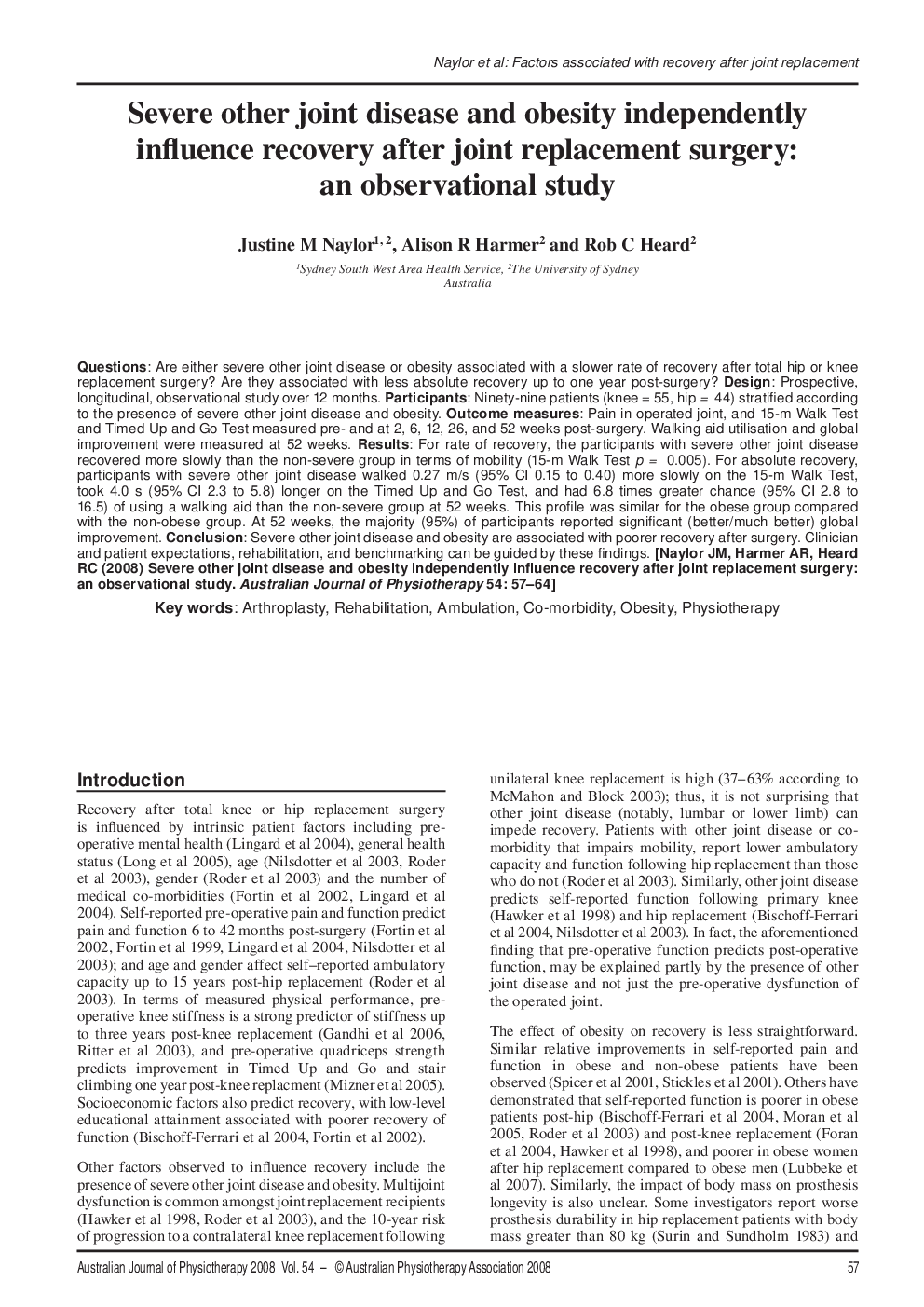| Article ID | Journal | Published Year | Pages | File Type |
|---|---|---|---|---|
| 2698638 | Australian Journal of Physiotherapy | 2008 | 8 Pages |
QuestionsAre either severe other joint disease or obesity associated with a slower rate of recovery after total hip or knee replacement surgery? Are they associated with less absolute recovery up to one year post-surgery?DesignProspective, longitudinal, observational study over 12 months.ParticipantsNinety-nine patients (knee = 55, hip = 44) stratified according to the presence of severe other joint disease and obesity.Outcome measuresPain in operated joint, and 15-m Walk Test and Timed Up and Go Test measured pre- and at 2, 6, 12, 26, and 52 weeks post-surgery. Walking aid utilisation and global improvement were measured at 52 weeks.ResultsFor rate of recovery, the participants with severe other joint disease recovered more slowly than the non-severe group in terms of mobility (15-m Walk Test p = 0.005). For absolute recovery, participants with severe other joint disease walked 0.27 m/s (95% CI 0.15 to 0.40) more slowly on the 15-m Walk Test, took 4.0 s (95% CI 2.3 to 5.8) longer on the Timed Up and Go Test, and had 6.8 times greater chance (95% CI 2.8 to 16.5) of using a walking aid than the non-severe group at 52 weeks. This profile was similar for the obese group compared with the non-obese group. At 52 weeks, the majority (95%) of participants reported significant (better/much better) global improvement.ConclusionSevere other joint disease and obesity are associated with poorer recovery after surgery. Clinician and patient expectations, rehabilitation, and benchmarking can be guided by these findings.
